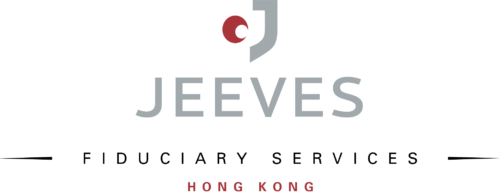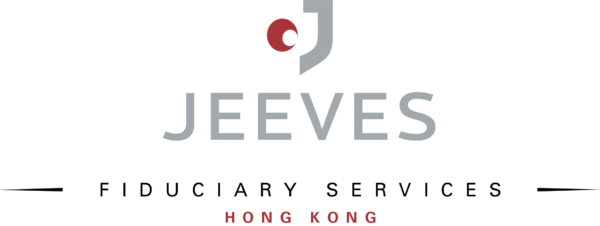Hong Kong
In Asia we trust.
Study the past if you want to define the future.
Hong Kong is one of the major financial centers in Asia and is situated on the southeast coast of China. It’s strategic location on the Pearl River Delta and South China Sea has made it one of the world’s most thriving and cosmopolitan cities.
 Insight. Hong Kong
Insight. Hong Kong
Hong Kong continues to serve as the gateway for the exchange of capital and goods between China and the world. Its position as a financial center has consolidated in recent years – sealed off from the mainland but closely connected to it. Hong Kong is still considered more reliable as the mainland – despite rising concerns in respect to compliance due to its dealings with China.
Nevertheless, the city remains to function as the staging springboard for investments in China. Also, its the place which gives Chinese companies access to global capital markets for bond and loan financing. The Chinese government has made the city a lab for financial reforms: the yuan’s path towards acceptance as a global currency began in Hong Kong in 2009. Hong Kong is also home to the biggest “dim sum” bond market — yuan-denominated debt that is issued overseas.
The Hong Kong Trustees’ Association Limited was established in 1991 by members of the trust and fiduciary services sectors to represent the trust industry in Hong Kong, particularly in the areas of legislation and education. It is a not-for-profit company limited by guarantee and incorporated in Hong Kong. The Trustees’ Association currently has more than 110 corporate members and represents thousands of people working in the trust, pensions, private banking, asset servicing, legal, accounting and other professional services sectors.
The Hong Kong Monetary Authority (HKMA) was established on 1 April 1993 by merging the Office of the Exchange Fund with the Office of the Commissioner of Banking. Its main functions and responsibilities are governed by the Exchange Fund Ordinance and the Banking Ordinance and it reports to the Financial Secretary.
The HKMA is the government authority in Hong Kong responsible for maintaining monetary and banking stability. Its main functions are:
- maintaining currency stability within the framework of the Linked Exchange Rate system
- promoting the stability and integrity of the financial system, including the banking system
- helping to maintain Hong Kong’s status as an international financial center
- managing the Exchange Fund.
Hong Kong University
Knowledge exchange (KE) has always been an important element of the University’s mission and practice and is best used to describe the proactive two-way flow of knowledge between the university and non-academic sectors of society for the benefit of both. It not only includes technology transfer but also encompasses all disciplines, including the arts and humanities and the social sciences, and is a two-way process.
The University of Hong Kong has a long tradition of contributing to the community. The Faculty of Law of the University of Hong Kong is the first law school in Hong Kong. First established in 1969 as a Department of Law in the Faculty of Social Sciences, it became a School of Law with an autonomous Board of Studies in 1978, and a Faculty of Law on 1 July 1984.
A look at the city’s history gives a strong impression that change is the only constant. Hong Kong’s spirit has never changed. The same energy and dynamism that turned a group of sleepy fishing villages into a crossroads of international trade is now taking Asia’s world city into the 21st century.
The history of Hong Kong goes back to China’s Qing dynasty. It’s government was defeated in the First Opium War in 1842, when it ceded Hong Kong Island to Britain. Within 60 years, Kowloon, the New Territories and 235 Outlying Islands were also leased to Britain.
Exploring the city’s colourful heritage, you’ll discover stories of powerful clans, marauding pirates and European traders.
 Insight. Liechtenstein
Insight. Liechtenstein
Liechtenstein is a constitutional hereditary monarchy on a democratic and parliamentary basis. As a result of this unique form of government, political decisions are reached by a consensus of the monarch, the parliament and the people. The Head of State is Prince Hans-Adam II, the thirteenth Prince of Liechtenstein.
The Princely House of Liechtenstein has a history dating back hundreds of years. The family gave the Principality of Liechtenstein its name and is engaged in several activities within the country and all over the world.
Prince Hans-Adam II of Liechtenstein is, however, the first Prince who actually grew up in Liechtenstein. Since 1938 the family resides at Vaduz Castle, the country’s iconic building that stands majestically 120 metres above the capital city Vaduz.
Liechtenstein’s Government comprising of the Prime Minister and four Ministers is a collegial body reporting both to the Parliament (‘Landtag’) – the highest legislative organ – and to the Reigning Prince (H.S.H. Prince Hans Adam II. von und zu Liechtenstein), the head of state.
The Government is appointed by the Reigning Prince following a proposal by Parliament and serves a four-year term. The seat of the Government is the country’s capital, Vaduz
Our success as a financial center is attributable to its strong regulatory framework and its extremely high quality standards. The rating agency Standard & Poor’s has assigned the Principality of Liechtenstein the highest sovereign rating of AAA. Liechtenstein is distinguished by extensive experience, tradition and professionalism in financial services and private banking, as well as strict laws to protect investors.
Not only thanks to the Customs Union of 1923 with Switzerland and the adoption of the stable Swiss franc as the official currency we offer as a result of the Monetary Union in Liechtenstein competence and stability and many more success factors:
- High level of political, economic
- Social stability
- AAA country rating by Standard & Poor’s
- Moderate corporate taxation
- Short and efficient decision-making channels
- Innovation-friendly environment
- High level of education and business-friendly labour market policy
- Broadly diversified economy with a strong industrial sector
It is an integrated and independent supervisory authority that supervises all financial market participants in the Liechtenstein financial center.
The Liechtenstein Institute of Professional Trustees and Fiduciaries is a public body, which safeguards the honour, the reputation and the rights of the Liechtensteinstein trustees.
The University of Liechtenstein is an inspirational thinking space and offers Architecture and Planning as well as business administration with an emphasis on entrepreneurship, finance and information systems.
As a member of the University teaching staff our Group CEO Alex Jeeves lectures regularly on International Trust Business.
With 160 square kilometers the Principality of Liechtenstein is the sixth smallest country in the world and located in the heart of Europe.
Our country consists of eleven municipalities. These municipalities are home to approximately 38’000 residents. Liechtenstein’s frontiers are 41.2 km with Switzerland and 36.7 km with Austria.


